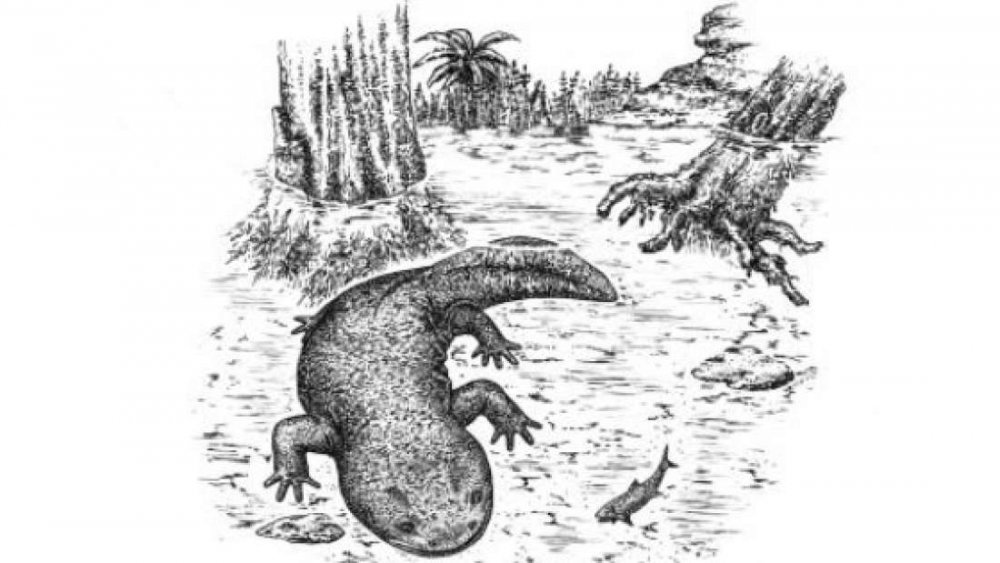
World’s Oldest Salamander Discovered In Siberia
It may not be the Reaper of Death or the horned war turtle from hell, but a new species of salamander dating to the Jurassic period has been unearthed (defrosted?) in the icy reaches of Siberia. According to research published in the scientific journal PLOS One, scientists discovered what they believe to be the oldest salamander in the fossil record, a 167-million-year-old creature that dates to the Middle Jurassic.
Paleontologists uncovered four fossilized vertebrae from a region of Siberia known as the Berezovsky quarry. Researchers familiar with this excavation site describe it as an “animal graveyard” where many prehistoric creatures have been discovered and identified. The newest oldest salamander specimen has been nicknamed Egoria Malashichev. At a mere 8 inches in length, Egoria swam some dangerous Jurassic seas also populated by mega sharks, carnivorous sea lizards and 2.5-meter-long sea scorpions. Yikes.
Just a small town salamander living in a Jurassic world
Pavel Skutschas, the study’s lead author, explained the significance of the find in a statement, “Salamanders first appear in the fossil records in the Middle Jurassic — including representatives of both the present-day salamander families and the most primitive ones. When they had just appeared, salamanders made efforts to occupy different ecological niches. Thus, the stem salamanders filled the niche of large water bodies – while those close to the present-day salamanders found their niche in small water bodies.”
Egoria isn’t the first ancient salamander specimen discovered at the animal graveyard in Berezovsky quarry. A 24-inch specimen known as Uropia monstrosa came out of the same pit, and likely swam the same seas as Egoria 165 million years ago. Despite the size difference, scientists believe U. monstrosa and Egoria share the same genera. Skutschas believes that both species likely enjoyed a wide habitat in their heyday, extending all the way across what is now Europe and Asia, but he won’t know for sure until his colleagues from England join him in St. Petersburg to confirm his results.
Until then, we’ll just have to wait for researchers to extract Egoria’s DNA from a mosquito trapped in amber, so Jurassic Park can get its least exciting attraction!

These Are The Requirements To Become A Freemason

Here's How Your Body Could Get Eaten After You Die

What Are The Mysterious Toynbee Tiles? We Explain

The Onion Headline That Predicted The Creation Of Netflix

The Legend Of The Mary Celeste Explained

Why Are Yeezys So Expensive?

Charmin Debuts Toilet Paper 'RollBot' At CES 2020

Kim Jong-Un Orders Floating Australian Luxury Hotel Destroyed

The Most Expensive Painting Ever Sold

Real-Life Slime Attacks That Will Give You Nightmares






















